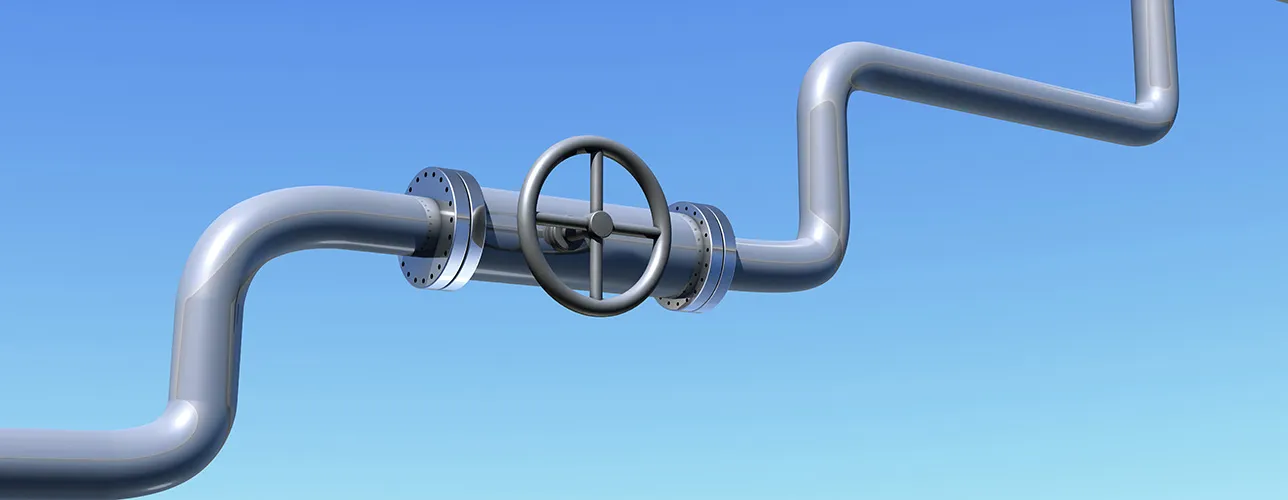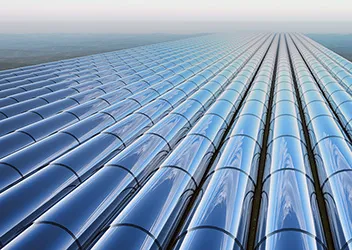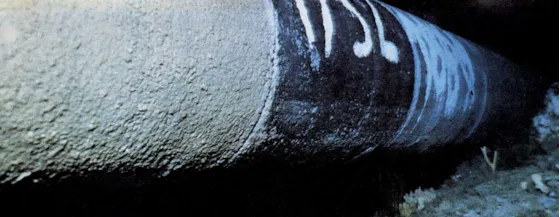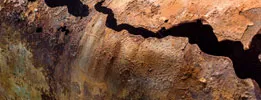Transporting oil or gas cost-effectively, safely and responsibly to consumers – often via an ageing pipeline infrastructure – is not a simple task.
More and more pipeline systems must traverse remote regions, extreme terrain, or harsh environments, or cross territories that differ in their regulatory regimes and requirements. Onshore and offshore pipelines are an effective and reliable way of transporting hydrocarbons over short and medium distances (x-y km), but they also represent large investments, with design and construction subject to strictly-defined application codes.
Since issuing our first pipeline standard in 1976, DNV has created a series of internationally recognized and award-winning standards, service specifications, and recommended practices. We work in partnership with pipeline operators, contractors, pipe mills, and other stakeholders to continuously improve our services and introduce new technology into our standards and to the pipeline industry.
Our global network of experts can deploy the full range of our experience, expertise, and technology development throughout the lifetime of a pipeline system.
By initiating joint industry projects (JIPs) for pipeline design and operation and investing 5% of our annual revenue in research and development, we work closely with customers to develop new technologies, industry standards and recommended practices.
Concept and feasibility
Our support to customers includes:- Concept design and early-phase review
- Support for selecting EPC contractors and establishing optimal solutions
- Technology qualification, independent CAPEX/OPEX estimates, and technical cost assessments
- Better understanding of technical risks, and advice on mitigation strategies
- Independent Front-End-Engineering Design (FEED) studies to help unlock potential project value and find the optimal cost-efficient solution
- Qualification of vendors to ensure quality and competitiveness.
Design, construction, installation and commissioning
With detailed design typically managed by contractors, DNV can carry out independent verification or certification, technical studies, material and full-scale testing, on-site inspections, and help ensure pipelines are designed, delivered, and installed in line with governing standards and project specifications, ensuring integrity and quality. Using our in-depth knowledge of standards, we also advise and support our customers to resolve technical challenges.Operations, life extension and decommissioning
DNV services focus on reducing operating costs without compromising reliability and safety, working closely with operators to establish the most cost-efficient solution for each system.
- Operations planning during the early design phases, building in operational aspects as early as possible, and getting the pipeline ready for operation
- Integrity management for control and documentation of integrity throughout the system’s operational life
- Condition assessment, including defect assessment and global pipeline behavior
- Inspection and maintenance planning — using condition assessments to prioritize inspection and maintenance
- Re-qualification for lifetime extension or change of use, or following modifications and repairs
- Remaining life and life extension studies
- Technical and onsite support for repairs, troubleshooting, interventions, decommissioning, and training.






